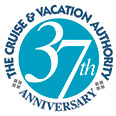Top 10 Common Cruise Questions
by Erica Silverstein, Cruise Critic
Cruising newcomers usually have more excuses as to why they've never sailed than there are ships at sea. Often, these excuses are based on misconceptions of what a cruise vacation is really like. If your mental image of a cruise vacation is based on Titanic (snobby rich folks playing shuffleboard and dining each night in gowns and tuxedos) or The Love Boat (lots of shameless hooking up between guests and crewmembers), or if it involves the notion of a floating, nonstop smorgasbord, you clearly need to bring your preconceived notions in line with the reality of modern cruising.
To give you more insight into the contemporary cruise experience, I've answered 10 of the most common questions that are asked by travelers who've never sailed.
Advertisement
1. Is Cruising Expensive?
The upfront price may come as a shock, but remember that your cruise fare includes your accommodations, meals in main dining venues, activities (including children's programs), and nighttime entertainmentnot to mention transportation from port to port. When you factor in all of the costs you'd incur on a land vacation, as well as the great deals you can currently find on cruise travel, you'll discover that you can actually save money by booking a cruise, as opposed to a land-based vacation.
2. Are Cruises All-Inclusive?
No. Your cruise fare includes a lot (see above), but you'll pay extra for a whole host of amenities. Among them? Alternative restaurants, some coffee and ice cream bars, soft drinks and alcoholic beverages, shore excursions, spa treatments, and gratuities. The luxury lines include more, but even they are never completely all-inclusive. (Drinks and gratuities may be included in fares, but spa treatments and shore excursions won't be.)
3. Are All Cruise Ships Alike?
Cruise ships come in a variety of sizes and personalities. You'll find a myriad of variations: big ships, small ships, explorer-oriented ships, absolutely decadent luxury ships, family ships, sailing ships ... and on and on!
4. Is Cruising Like Going to Vegas or to a Resort?
Well, yesand no. These days, cruise ships do have all the comforts and luxuries that travelers associate with on-land resorts, as well as much of the glitz and glamor of destinations like Vegas (including bustling casinos and lavish production shows). Howeverand this may seem obvious, but it needs to be mentionedyou are on a ship. Rough seas can impact your itinerary, you must debark and reboard the ship at specified times, and your cabin will typically be smaller than a hotel room (unless you book the highest level of suites).
5. Isn't Cruising Just for the "Newly Wed and Nearly Dead"?
It used to be, but no way is that true anymore. Cruise ships are increasingly targeting families, offering children's programs and facilities that rival those on land. You'll find onboard water parks, teen discos, video games, and a variety of craft projects and interactive play. Singles can enjoy the camaraderie of communal meals and organized shore tours, special singles' meet-and-greets, and a host of onboard activities. Hip and urban travelers will be pleased to find gourmet dining, high-tech and modern entertainment, and late-night action at onboard bars and clubs. Gay and lesbian cruisers are welcomed onboard with their own meet-ups in ships' lounges. Charter cruisescatering to gay singles, couples, and familiesare also offered.
Health-conscious and active travelers should note that midnight buffets have given way to expansive fitness centers, spa cuisine, and an array of active, onboard pursuits like rock-climbing and Pilates classes. And, cruise lines are even offering plenty of shorter-than-usual (three- to six-night) voyages that are marketed to working folks, who simply can't give up two weeks or more.
6. Will I Get Sick or Seasick?
You may have read news articles about outbreaks of norovirus on cruise ships. Norovirus is a stomach bug that spreads easily in contained environments, such as hospitals and schools, as well as ships. You can stay healthy by washing your hands often and using the hand sanitizer lotion found in dining areas and by the ship's gangway.
As for seasickness, most ships are so big and well-stabilized that you can hardly tell you're moving, especially in the calm waters of the Caribbean and Alaska's Inside Passage. Radar helps big ships outrun hurricanes and other bad-weather patches, but if you do happen to pass through some rough water, any queasiness can usually be relieved by an over-the-counter medication like Dramamine or Bonine. If you are very prone to seasickness, ask your doctor before you leave home for the Transderm patch, available by prescription. Alternative remedies include ginger capsules and acupressure wristbands, available at most pharmacies. Also, note that the purser's desks on most ships can provide rations.
7. Is Cruising Safe?
Ships must follow an extraordinary number of rules and regulations that assure passengers' (and crewmembers') safety while onboard. The Coast Guard conducts rigorous, quarterly inspections of all ships that operate from U.S. ports, looking to make sure they comply with emergency-response requirements. Rather than sinking (a la Titanic), fire is the biggest concern, and when it comes to fire safety, ships operate under international rules, known as Safety of Life at Sea (SOLAS). The rules require most ships to have smoke detectors, sprinklers, and low-level emergency lighting for escape routes.
Within the first 24 hours of sailing, everyone on your ship is required to participate in a safety drill that includes trying on a nifty orange life jacket and locating your assigned lifeboat, on the odd (and rare) chance that you need to use it.
However, cruise ships are like mini-cities, and you should take the same general travel precautions you would on land. Keep any valuables in your cabin's safe (or leave them at home), don't open your cabin door without verifying who's there, and give children strict rules about when they can and cannot roam the ship without adult supervision.
8. Will I Be Bored?
No way! You may need a map to navigate around today's big ships, and there's something to do in nearly every corner. For intellectual stimulation, you can listen to guest speakers, participate in Bridge tournaments or attend wine lectures. To get your heart pumping, play some hoops, or visit the ship's gym. There are pools for soaking and swimming, boutiques for shopping and spas for pampering. You can participate in contests, do crafts, watch movies, or simply grab a book and get a tan.
Even on small ships, there's plenty to do during times when the vessels are at sea; most notably, these cruises tend to offer strong enrichment-oriented activities. Plus, remember you're not on the ship all the timemost itineraries include a variety of different ports of call.
9. Won't I Get Fat?
OK, we know the rumor that the average person gains about five pounds on a one-week cruise. But, for those watching calories, be assured there will be low-fat (and often low-carb) options on the menus and some healthy choices at the buffets. Certain ships actually have onboard spa cafes. And, many have simply done away with midnight buffetsthose longtime paeans of absolute indulgence. (After-dinner revelers can, instead, partake in hors d'oeuvres, served in late-night venues.)
Aside from eating healthy, you can also burn calories by working out in the ship's gym, speed-walking or jogging around the various decks (or ditching elevators in favor of stairs), and mountain-biking, hiking, and kayaking in port. Some ships have basketball courts, rock-climbing walls, and rollerblading rinks for more onboard athletics.
10. Can I Stay in Touch?
On most ships, you'll get CNN or some other cable news network on your in-room TV. A daily news sheet may also be available, combining wire reports with stories from major newspapers. You can make phone calls from the phone in your cabin (though it's prohibitively expensive), and from your cell phone, as well. (Roaming charges apply.) Most ships have Internet centers and shipboard WiFi, so you can read email and surf the Web.

With each issue of Ultimate Experiences Online, you’ll enjoy a collection of articles, slideshows and videos that we will inspire you to make your travel dreams a reality.

To help you discover ways to explore the world, we're pleased to share our The Travel Magazine Online.
 Save money and escape the crowds. Hot Deals and multi-port packages. Savings of up to 50%!
Save money and escape the crowds. Hot Deals and multi-port packages. Savings of up to 50%!

Our free app that allows you to carry all of the destination information you need while traveling, right in your pocket!

We recommend optional travel insurance that protects you in the event of having to cancel your trip avoiding travel vendor cancellation policies and more!





